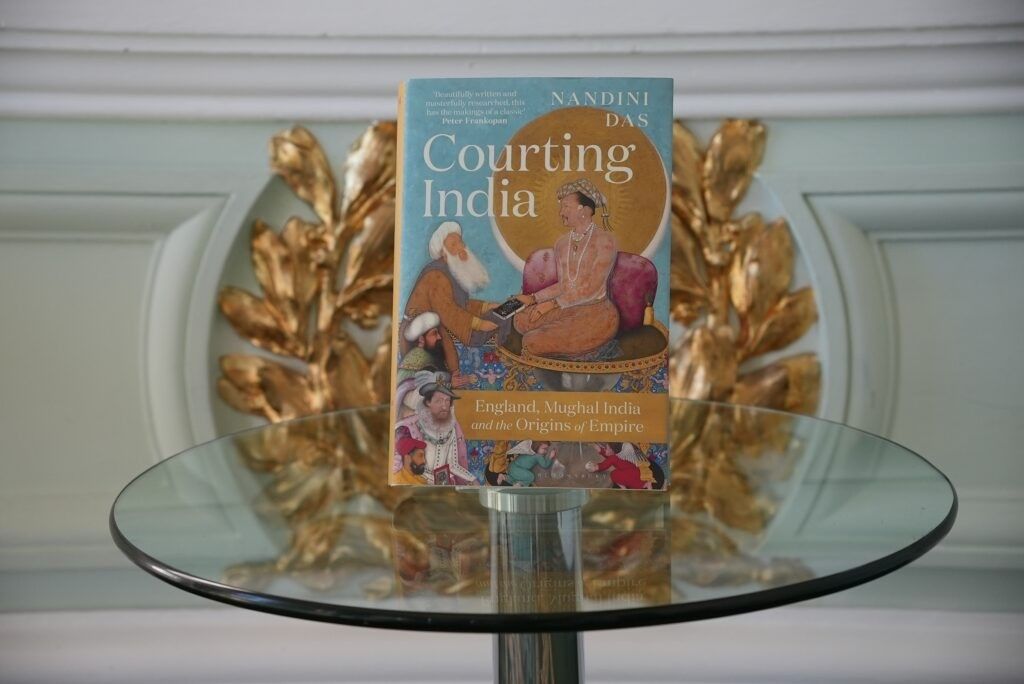Nandini Das has won the 11th British Academy Book Prize for Global Cultural Understanding with for her debut work “Courting India: England, Mughal India and the Origins of Empire.” The award was presented by professor Charles Tripp FBA, the Chair of the jury, during a celebratory event at the British Academy on Tuesday (31).
In Courting India, Das who is a professor of Early Modern Literature and Culture in the English faculty at the University of Oxford, reimagines the early encounters between Britain and India, focusing on the arrival of the first English ambassador in India, Sir Thomas Roe, in the early 17th century.
Das navigates beyond Eurocentric narratives, providing readers with an unbiased account of the clash of two cultures, highlighting the ambitions, misunderstandings, and prejudices that unfolded during this pivotal period.
The book, drawing from a diverse array of sources including literature, the memoirs of Mughal Emperor Jahangir, and the journals and correspondence of Sir Thomas Roe, plus the archives of the East India Company, invites readers to explore the intricate tapestry of history narrated from both perspectives, a press release by the British Academy said.
Commending Das for her work, professor Tripp said, “Nandini Das has written the true origin story of Britain and India. By using contemporary sources by Indian and by British political figures, officials and merchants she has given the story an unparalleled immediacy that brings to life these early encounters and the misunderstandings that sometimes threatened to wreck the whole endeavour.
At the same time, she grants us a privileged vantage point from which we can appreciate how a measure of mutual understanding did begin to emerge, even though it was vulnerable to the ups and downs of Mughal politics and to the restless ambitions of the British.”
He added, “Through her beautiful writing and exceptional research, the jury was drawn to the contrast between an impoverished, insecure Britain and the flourishing, confident Mughal Empire and the often-amusing, sometimes querulous exchanges between their various representatives. Moreover, we were reminded through this story of the first ambassadorial mission of the value of international diplomacy, but also of the cultural minefields that surround it in ways that still have resonance today.”
Das presents a nuanced view of this crucial pre-colonial era, shedding light on the complexities of cultural exchanges between two distinct worlds.
Additionally, Das’s book serves as a testament to the value of international diplomacy, showcasing both the achievements and cultural complexities that surround it.
Professor Julia Black, president of the British Academy, extended her congratulations to Das, acknowledging the significant contribution of her work to global cultural understanding. She emphasised the importance of literature in fostering mutual understanding across borders, praising Das’s ability to shed light on contemporary issues through historical storytelling.

Courting India was chosen from a shortlist of six books, including titles such as Red Memory: Living, Remembering and Forgetting China’s Cultural Revolution by Tania Branigan, The Violence of Colonial Photography by Daniel Foliard, Black Ghost of Empire: The Long Death of Slavery and the Failure of Emancipation by Kris Manjapra, Papyrus: The Invention of Books in the Ancient World by Irene Vallejo, and Ritual: How Seemingly Senseless Acts Make Life Worth Living by Dimitris Xygalatas.
Das will be awarded £25,000 for winning the prize, while each of the shortlisted writers will receive £1,000.
The British Academy Book Prize, previously known as the Nayef Al-Rodhan Prize, was established in 2013 to recognise outstanding non-fiction works that enhance public understanding of diverse global cultures and their interactions.
This year’s jury, led by Professor Charles Tripp also included Professor Madawi Al-Rasheed FBA, Professor Rebecca Earle FBA, Fatima Manji, and Professor Gary Younge Hon FBA.
Raised in India, Das pursued her education at Jadavpur University in Kolkata before moving to England for further studies. Among other books, she serves as a co-editor for The Cambridge History of Travel Writing.
Additionally, Das is recognised as a BBC New Generation Thinker, contributing to various television and radio programmes, such as Tales of Tudor Travel: The Explorer’s Handbook on BBC4.
The British Academy is the UK’s national academy for the humanities and social sciences, and the book Courting India: England, Mughal India, and the Origins of Empire is published by Bloomsbury Publishing.
